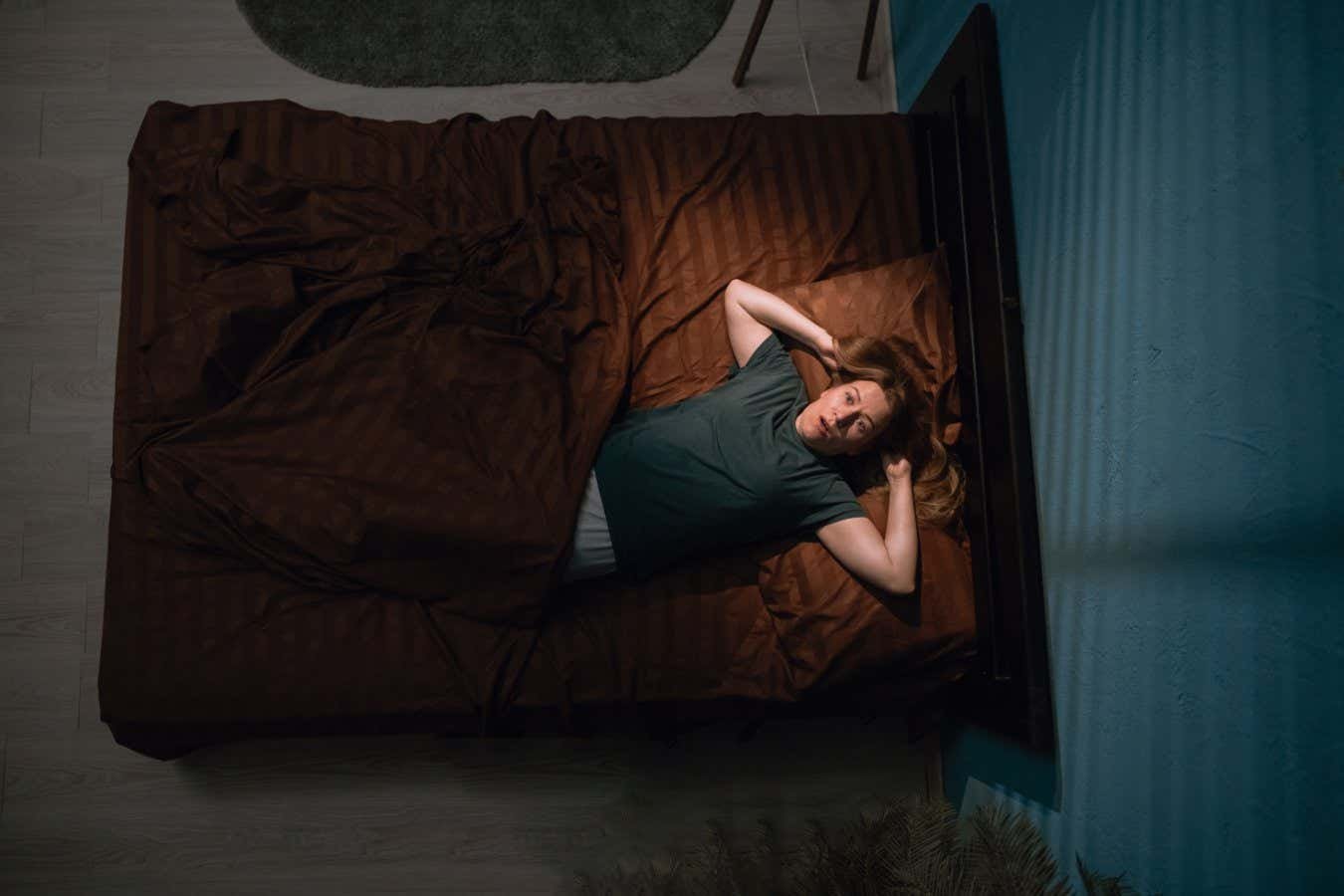There are things we can do to prevent nightmares, such as not watching scary movies
Andrii Lysenko/Getty Images
Having nightmares on a weekly basis seems to accelerate aging – and could even triple the risk of early death.
“People who have more frequent nightmares, age faster and die earlier,” says Abidemi Otaiku at Imperial College London.
Together with his colleagues, Otaiku analyzed more than 183,000 adults aged 26 to 86 who had participated in several studies. Initially, the adults reported themselves how often they had nightmares, and we are then traced in as little as 1.5 years for as long as 19 years.
The researchers found that those who reported having nightmares on a weekly basis were more three times as likely to die before they turned 70 than those who said they never or rarely had nightmares.
There is a clear connection, says Otaiku, whose team also found nightmare frequency as a stronger prediction of premature death than smoking, obesity, poor diet or lack of physical activity. He will present the results at the European Academy of Neurology Congress 2025 in Helsinki, Finland, on June 23.
The team also assessed the participants’ biological age by measuring the length of their telomeres, which are small DNA sequences at the end of chromosomes that shorten a cell dives each time, with shorter overlooks associated with premature aging. This part of the study also includes data from approx. 2400 children aged 8 and 10 years if nightmare frequency was reported by their parents. The adults got their biological age further assessed via molecular markers known as epigenetic watches.
Otaiku says the team found an existing between frequent association’s nightmares and accelerated aging across all ages, gender and ethnicities. “Even in childhood, people who have more frequent nightmares have short telecommunications, indicating faster cellular aging,” he says. Among the adults, the faster biological aging draws for approx. 40 percent of their increased mortality risk.
As for why this association is taking place, Otaiku says it could come from two factors. The first is that nightmares extended high levels of the stress hormone cortisol, which has been linked to rapid cellular aging. “Nightmares often arouse us with our hearts knocking, in a stress reaction that is more intense than something we experience when we are awake,” he says.
The second factor is disturbed sleep, which interferes with the body’s overnight ridges. Sleep disorders have been linked to the risk of the risk of different medical conditions included.
If people want to avoid ordinary nightmares, there are often easy ways to do it, says Otaiku, including not watching scary films and seeking treatment for mental health as an anxiety conditions.
“It’s an interesting finding and there’s plenty of biological plausability,” says Guy Leschziner at Guy’s and St Thomas’ NHS Foundation Trust. However, he says there is a need for more research to establish a causal connection. Nightmares can be associated with an intervals of medical conditions and medications that people could have as they get older, which could confuse the results, he says.
Topics:
